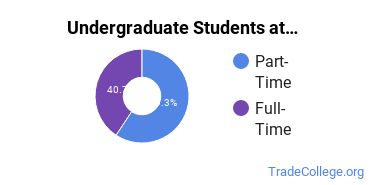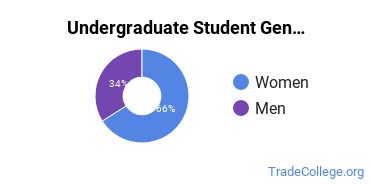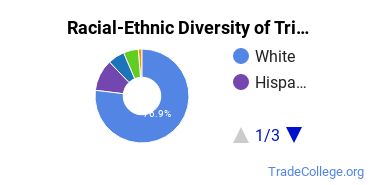Find Trade Colleges
Trine University-Regional/Non-Traditional Campuses Trade Programs
Trine University-Regional/Non-Traditional Campuses is a private not-for-profit institution located in Angola, Indiana. The location of Trine is a good match for students who are interested in living in a college town while they pursue their degree.
Featured schools near , edit
Where Is Trine University-Regional/Non-Traditional Campuses?

Contact details for Trine are given below.
| Contact Details | |
|---|---|
| Address: | 1 University Avenue, Angola, IN 46703 |
| Phone: | 260-483-4949 |
| Website: | trine.edu |
| Facebook: | https://www.facebook.com/TrineUniversity |
| Twitter: | https://twitter.com/trineuniversity |
Can I Afford Trine?
| In State | Out of State | |
|---|---|---|
| Tuition | $9,576 | $9,576 |
| Books and Supplies | $900 | $900 |
Student Loan Debt
It's not uncommon for college students to take out loans to pay for school. In fact, almost 66% of students nationwide depend at least partially on loans. At Trine, approximately 100% of students took out student loans averaging $4,750 a year. That adds up to $19,000 over four years for those students.
Trine University-Regional/Non-Traditional Campuses Undergraduate Student Diversity

There are also 707 graduate students at the school.
Gender Diversity
Of the 152 full-time undergraduates at Trine, 39% are male and 61% are female.

Racial-Ethnic Diversity
The racial-ethnic breakdown of Trine University-Regional/Non-Traditional Campuses students is as follows.

| Race/Ethnicity | Number of Grads |
|---|---|
| Asian | 2 |
| Black or African American | 9 |
| Hispanic or Latino | 12 |
| White | 114 |
| International Students | 6 |
| Other Races/Ethnicities | 9 |
Trine University-Regional/Non-Traditional Campuses Trade School Concentrations
The table below shows the number of awards for each concentration.
| Major | Associate’s | Bachelor’s | TOTAL |
|---|---|---|---|
| Manufacturing Engineering Technology | 4 | 4 | 8 |
| Health Care Management | 0 | 2 | 2 |
| CAD/CADD Drafting &/or Design Technology | 0 | 1 | 1 |
| Engineering Technology | 1 | 0 | 1 |
| Industrial & Management Engineering | 0 | 0 | 0 |
| TOTAL | 5 | 7 | 12 |
References
*The racial-ethnic minorities count is calculated by taking the total number of students and subtracting white students, international students, and students whose race/ethnicity was unknown. This number is then divided by the total number of students at the school to obtain the racial-ethnic minorities percentage.
More about our data sources and methodologies.
